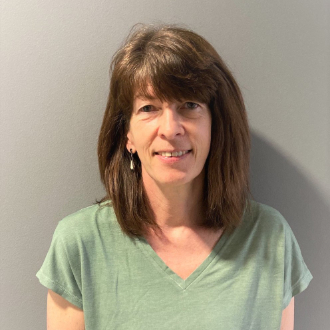
Current role: Reader in Cardiovascular Physiology & Director of Equality, Diversity & Inclusion for SIPBS
What do you love about your job?
The diversity. My job has countless opportunities to learn different things (from exploring how sex differences may influence susceptibility to cardiovascular disease in my research, to teaching Malaysian students on our Pharmacy articulation programme in Kuala Lumpur). Through my work, I’ve had the honour of meeting and collaborating with people from all over the world and experiencing many different cultures. Although scientific research is challenging, it is also a privilege to have such a full and varied job. It is certainly never dull!
What are two obstacles you’ve had in your career and how did you overcome them?
For me, two of the biggest obstacles in pursuing a career in research have been (i) limited access to research funding and (ii) the hypercompetitive system, which, in my earlier years, resulted in overly long working hours. In terms of funding, I have taken the approach of submitting less funding applications but putting more time and effort into the application process. This approach has largely been driven by my academic position where I have often juggled many roles and therefore had to prioritise time carefully. I have learned that working long hours on a regular basis does not always equate to high quality work. Getting the work-life balance right is crucial and, in more recent years, I’ve made a concerted effort to put greater focus on my wellbeing.
Who are your role models?
My scientific and academic role model is Prof Godfrey Smith. I worked with Godfrey for a number of years at the University of Glasgow where he taught me a great deal about cardiovascular physiology and being passionate about research. Godfrey has always worn his learning and incredible career achievements lightly, always putting a person’s welfare before research publications, income or prestige. Most importantly, he taught me a lot about the importance of humanity in everything you do and how people will always respond positively when they feel valued. In a hypercompetitive field such as ours, this quality is rare indeed. A very humble person who I feel incredibly privileged to know.
My role models out-with my career were my parents. Both overcame significant obstacles to pursue their chosen careers. For my father, becoming a minister in the Church of Scotland, after serving for 6 years on the frontline during WW2. As a 20 year old at the start of the war, he fought alongside his comrades across Europe and was awarded a medal for bravery. For my mother, graduating as a nurse, at a time when career paths for women were limited. Her love of nursing lasted all her life and her fascination with the workings of the human body probably influenced my career choice. Sir Alexander Fleming was an elderly man in attendance at her graduation.
What advice would you give to Early Career Researchers?
Surround yourself with people who bring positivity, support and good advice.
A career in research is challenging but can be very rewarding. It is an ongoing campaign and there will be failure but, with a good support network, you will learn from that failure and use the knowledge gained to promote effective change and success going forward.
I like the quote from Winston Churchill, which I think sums up the attitude you should take for your career in research – ‘success consists of going from failure to failure without loss of enthusiasm’